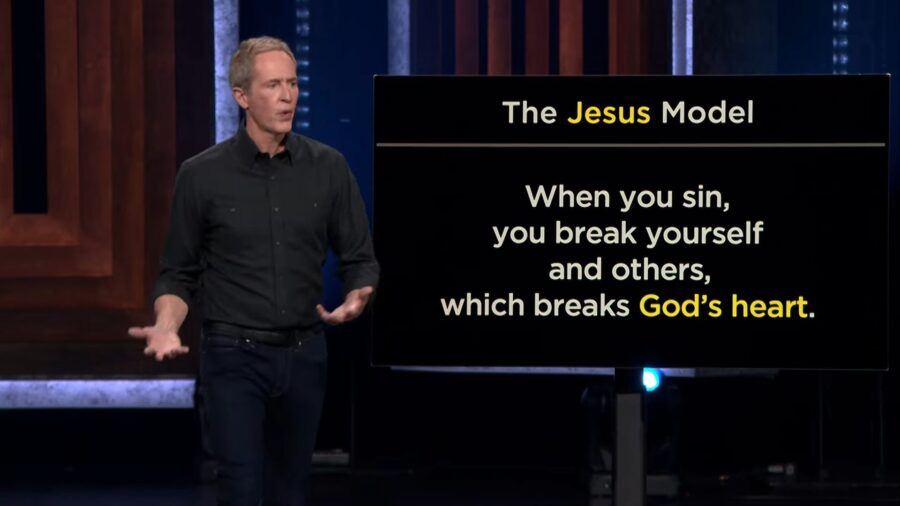Andy Stanley’s New Sermon Offers Up a Curious Definition of Sin
A Temple Model vs. Jesus’ Model of sin?
As North Point Community Church and pastor Andy Stanley continue to be embroiled in a series of controversies featuring the revelation of widespread LGBTQ-affirming pastors, church leaders, and sentiment within their churches (see endnotes), Stanley is going through his The Fundamental List sermon series, where he outlines the fundamentals of the faith that must be believed to be saved.
In sermon three, Stanley says that one fundamental is that people “must acknowledge and embrace Jesus’s characterization/ definition of sin.” Throughout the sermon, Stanley takes pains to purposefully delineate the scriptural definition of sin from Jesus’s definition of sin, almost pitting them against each other. Notably, he offers a Temple Model vs. Jesus’ Model of sin.
“The message of the Temple Model was this: when you sin, you break God’s law. The Jesus Model sounded like this: ‘When you sin you break yourself and others, which breaks God’s heart.’ So we shouldn’t be surprised that God is anti-sin, because God knows what all of us who are 25 years or older and even younger than that, but let’s just be fair- anybody who’s 25 years older. Here’s what we already know from our own experience, right? Every sin, every sin comes with a prepackaged consequence. They all come with a prepackaged consequence, right?
..I wanted them to be cute, wanted them to be memorable. These are just my words. Number one. This is what it looks like, if it’s not good for him, it’s a sin. It’s that simple. If it’s not good for him, it’s sin. If it’s going to harm him or set him up for harm, it’s a sin. Is it in the bible? Doesn’t matter. If it harms him, it’s a sin.If it’s not good for her; defer. Same thing as this but it just rhymes. Okay? If it’s not good for her; defer.
…Number three. If it’s not good for you, no can do. It’s that simple. You know why? Because your heavenly father loves you, and if it’s bad for you, it’s a sin. You’re sinning against yourself, and God isn’t just concerned about how you treat others, God is concerned about how you treat yourself. Your body, you know, your future. Anything that has anything to do with you. Your character, your reputation, because God loves you. It’s a sin.
And number four, if it’s not good for them, it should be condemned. If there’s a group of people in our culture, or in our society in the world, and they’re being mistreated because of injustice or unfairness or just some societal thing, it is okay for Christians to speak out in objection to those things because they are being sinned against by another group of people, or by a government or who knows.
He concludes:
This is part of it. Because what God values most is not his rules, what God values most are people. And behind the rules is his love for justice-we’re going to talk that- and his love for mercy and kindness and forgiveness and what elevates the status and well-being of people. Do you know why Jesus characterized and defined sin this way? It’s because, as I said before, this is how his Father in heaven does.
And you know why your heavenly Father is against sin? Do you know why your heavenly Father is against sin? Because he’s for you and the you’s around you.
.. Of course God is anti-sin because he is for you. And at the epicenter of how Jesus defines sin and how your heavenly father to find sin, it’s how your behavior in mind impacts other people. So this is essential. It’s fundamental that we view sin the way our savior view sin.







